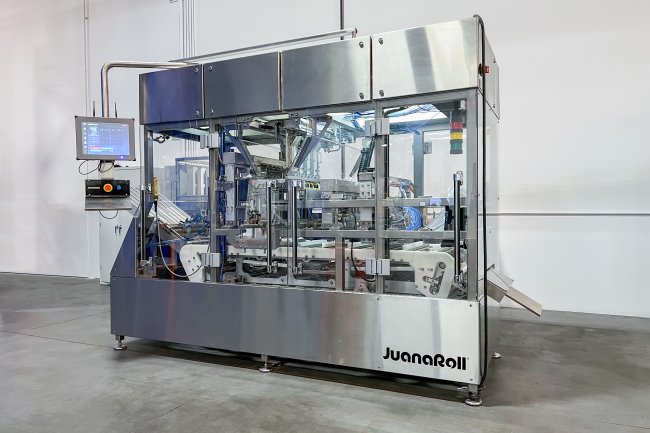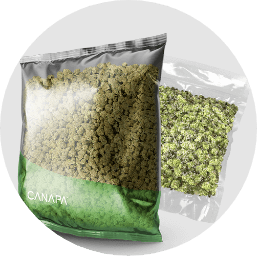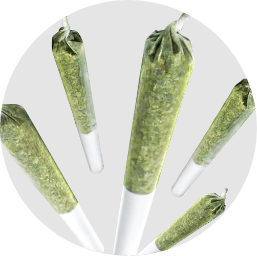BY BRIAN BECKLEY
With five generations of farming experience and know-how, moving from traditional agriculture into the cannabis space seemed like an easy decision for Nature’s Grace and Wellness chief operating officer Tim O’Hern and his wife Claire O’Hern, the company’s operations manager.
But right from the jump in 2015, cannabis in Illinois proved to be a “dramatically different business” than the one he grew up in.
From the regulations to the branding and packaging of product to even the new method they would use to grow the product, cannabis brought a unique set of challenges.
“We’re able to overlay some of our traditional ag knowledge on the cannabis space, particularly as it relates to large-scale production methodologies. But there are a lot of differences with controlled environment production versus what we were accustomed to,” O’Hern says. “That was certainly a learning curve.”
But one place the O’Hern family farming experience proved helpful was in finding efficiencies to get the most from their land and keep the price point accessible to as many customers as possible.
“Our focus from day one was to be as efficient as we possibly can,” O’Hern says.
THROWING THEIR HAT IN THE RING
Located in a 360,000-square-foot combination indoor/greenhouse facility situated amongst the family’s row crops and cows in Vermont, Illinois — still operated today by Tim’s brother — Nature’s Grace and Wellness was founded in 2015 under the state’s medical cannabis pilot program.
“We’re unique in that we’re a family-owned and operated business,” O’Hern says. “Our family traditionally specialized in traditional agriculture, such as corn, soybeans and cattle.”
As fifth-generation farmers, they saw cannabis as the obvious next step, “given our background.”
“If there was going to be a large-scale agricultural undertaking in the state, we wanted to throw our hat in the ring,” O’Hern says.
Nature’s Grace and Wellness was the first cultivator authorized to bring cannabis plants into its building and has been a part of the Illinois medical — and now recreational — landscape since. Today, the company grows 150,000 square feet of canopy, including 30-35 genetic varieties at any given time, and produces about 50,000 pounds of cannabis annually.
O’Hern says what sets Nature’s Grace and Wellness apart from other producers in a state dominated by large, multi-state operators is that it is still a family-owned and operated farm run by people with a long history of tilling the soil. While that might sound like a catchy tagline, to the O’Hern family, that means being in the facility, working with the plants to problem-solve and adopt best practices to their new enterprise.
“We’ve got a very hands-on approach to what we’re doing and always looking at ways to improve our efficiency and the customers’ experience with our products,” he says.
FINDING EFFICIENCIES
While he is still growing plants, O’Hern admits that growing cannabis is not like running a traditional farm.
“We certainly benefited from our agricultural background,” he says. “But there’s increasingly more areas that we see that are dissimilar from traditional agriculture.”
One of the main differences, according to O’Hern, is the farm’s place in the overall supply chain and the need to produce a finished consumer packaged good.
“We get to participate in every element of the food chain. We take the product from clone all the way through that final, packaged product that ends up on a dispensary shelf,” he says. “So that has been very rewarding in a lot of ways.”
The company produces not only flower, but vapes and concentrates, a full line of edibles and topicals and, of course, pre-rolls — though O’Hern maintains an old-school agricultural focus on efficiency while still creating products instead of harvesting crops.
“We currently have around 200 employees and we’ve scaled quickly for market needs and added on to our production facilities, but recognize that we needed to automate quite a bit of our processes to be able to operate more efficiently,” he says.
For example, one area the company needed to improve was in meeting the rapidly growing demand for pre-rolls. O’Hern says the company was having trouble sourcing and training workers from the small, rural village in which they are located (particularly during the pandemic) to produce the item. It was a labor-intensive process that had an “increased opportunity for inconsistency” that left him — and potentially customers — dissatisfied.

In this case, O’Hern eventually went for a hands-off approach, and found his solution in automation, buying a Canapa JuanaRoll machine by Paxiom.
“They had to find an alternative to manual pre-roll packaging, or they might not be able to support any of their product lines,” Paxiom marketing director David Morgan said in an email. “This spoke to us about the power of automation in this COVID environment and the reality that reducing labor is sometimes not the result of automation, it’s the cause.”
O’Hern says the company’s Slims preroll brand is now more consistent, and consistently available, drawing positive reviews from buyers.













